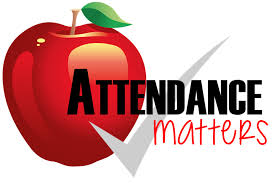 December 2022
December 2022
Each year, the Annual General Meeting (AGM) is when we elect directors to make decisions about how much we pay in condo fees and how this money is spent. We expect these people to make decisions about how our community operates. Despite the importance of this, and having attended AGMs for more than ten years, I’m bored with them. Worse, they have become a waste of my time.

Year after year director-candidates fail to offer any vision of their priorities or what they hope to achieve. They all claim experience, dependability or reliability, and ethics. They focus on basics expected of any elected director making them no different than anyone else.
Rebuilding interest in the AGM requires those in control to make these gatherings viewed as “must attend” events. This can only be achieved after understanding why most choose not to attend.
What takes place at the AGM
Most AGMs follow a basic agenda.
- Approval of auditors for the coming year.
- Election of directors.
- Auditor review typically limited to reiteration of information previously distributed.
- During question period, questions are asked to which the most common responses are “let me look into it” or “we’ll get back to you” before it is forgotten and never responded to. With virtual meetings it is now easier for questions to be met with silence once microphones are muted.
While these basic tasks are necessary there is no need for them to take so much time or be so boring. The auditor can provide a graphic summary showing some insight into what appears on the financial statements. There can be an overview of upcoming projects or graph showing where financial concerns lie along with a summary of plans for the coming year.
Virtual Meetings
Virtual meetings, despite their benefits, can be more boring and less engaging. This year’s virtual meeting was a waste of two hours. Candidates were uninspiring. The auditor repeated the same “inspiring” speech and no insight to financials provided prior to the meeting. The President presented a review of the past year and no hint of future plans, efforts or direction. Overall, the AGM was clearly intended to fulfill compliance requirements rather than to inform, engage or educate.
The virtual nature of this year’s meeting made it easier for board members and condominium manager to offer “non answers” to owner questions. Questions about excessive COVID restrictions to elevator and exercise room access were met with silence or “on the advice of legal counsel” which, if true, makes one wonder just how and why legal counsel should be involved in such a matter.
One advantage of virtual meetings is that the level of community disinterest becomes clear. For one community, last year’s attendance was estimated at about 60 people which looks good when a room gets filled. At this year’s virtual meeting the displayed count of under 30 units represented about 14 percent of owners. Presumably, quorum was achieved by proxies.
Repercussions
No wonder communities struggle to find candidates willing to serve on boards comprised of individuals with no vision or willingness to work towards improvement.
In the 2020 US election, Joe Biden was elected because he wasn’t Donald Trump. Few had any idea of what he wanted to achieve nor did they care. This doesn’t bode well for his future re-election or that of his party. In Canada we vote differently which doesn’t mean we make better decisions. Here people continue to vote for who promises to give them more in their pocket and less to someone else.
Condo elections are different. Owners directly pay for what they receive in benefits. If those benefits don’t have value then our money is wasted. In communities where most directors have no vision, and are unprepared to invest in their community, there exists a perpetual state of decline. Amenities fail to be updated. HVAC systems, water leaks and elevator breakdowns increase until repair or replacement is necessary.
Interviewing Director-Candidates
Directors should always be thinking about solving problems, reducing costs or enhancing our lifestyles. That takes skill, discipline, perseverance and resolve. These traits, despite their importance, make directors a target to those with a more selfish or short-term perspective. It is simpler to say and do little so long as this approach is supported by those voting in condo elections.
Director-candidates should be encouraged to identify their priorities and views on matters that are relevant to your community. In 2019, Toronto Condo News offered interview questions for director-candidates which I have updated.
Condo Finances
Many director-candidates have developed opinions or beliefs without the benefit of fact. Individuals who have not taken time to review and understand condo corporation financial documents are unlikely to be good directors.
- How familiar are you with the condo corporation’s finances?
- What is your opinion of the current budget?
- What would you do differently?
- What is your opinion of the reserve fund?
- Is the current contribution level for the reserve fund adequate? If not, why?
- What would be your priorities in the condo corporation’s budget?
Be concerned about director-candidates unable to provide a good answer that suggests they have read and understood the financial documents. These are not individuals you want managing hundreds of thousands, or millions, of dollars each year.
Condo Rules and Policies
- What is your opinion on current condo rules?
- What condo rules or policies, if any, do you feel need to be changed?
This is a good way to find out a candidate’s position on areas of concern which may include cleanliness, short-term rentals, pets, parking, noise or other issues important to you.
Amenities
- What is your view on amenities of the condo corporation?
- Have the corporation’s recent responses to COVID been reasonable and appropriate?
- What changes, if any, would you advocate?
Author is a former condo director who has lived in four high-rise condo communities for more than ten years and attended every Annual General Meeting.







